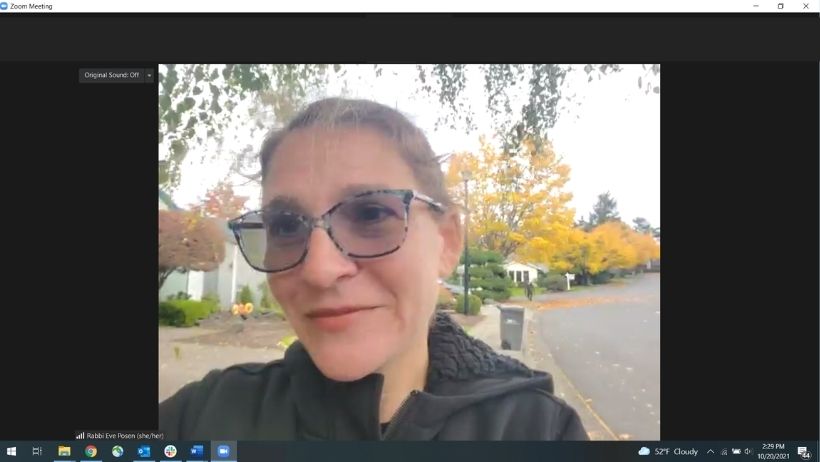One of the hardest parts in switching to what is now a commonplace Zoom lifestyle was not being able to really see people. Yes, we mostly had our cameras on during meetings and services, but only seeing someone from the neck up isn’t really seeing them. So much of what I use in conversation comes from watching body language, watching subtle movements and shifts in others, and being fully present with another person. I’m just as guilty as the next person of occasionally being “checked out” when a meeting is online. If I’m not on a walk, where there are fewer distractions, it’s much too easy to check and answer emails or help a kid with a project. I wanted to be fully focused, but sitting and staring at a screen all day long didn’t really allow me that focus I needed. So in other words, not being able to completely see people has also made it difficult for me to completely hear them.

I know I’m not alone in my inability to be fully focused, or fully listening, when something else is calling for my attention. One reason I know this is because it’s actually at the center of this week’s Torah portion. In this week’s parshah, Vayera, we learn a version of this lesson as well. Here’s the recap: Abraham and Sarah contemplate the son that will be born to them in their old age; Sodom and Gomorrah fall as Abraham bargains with God to save Lot’s life; and Isaac is born, causing a rift in Abraham’s house with Ishmael. Abraham moves forward in making a deal with King Avimelech, and we end with the Akeidah, the test of Abraham as God asks that he offer up his son, Isaac.
When Abraham and Isaac are on the walk to the mount for Abraham to sacrifice Isaac, there is stilted conversation. Isaac repeatedly asks questions based on his observations. “Where are we going?” “Where is the sacrifice?” And Abraham’s answer is consistently, “God will see to the sheep” and “He saw the place.” Whereas Isaac was taking in the world around him, likely because he was fully focused on the experience, Abraham’s focus was somewhere else, perhaps hoping and praying that God would intervene and call off this test. Abraham wasn’t watching his son to see how to really comfort him; instead, he was focused on God.
This is not to say that as a monotheistic people we shouldn’t focus on God; rather, it’s a subtle reminder that Judaism, parenting, and life in general are about being present. After this incident, Abraham and Isaac don’t really speak to each other again, not that you can blame them. But I can’t help wondering if that would have been different if Abraham had been fully present with Isaac, listening to him, to really see him and to answer his questions, share wisdom, and let him know he was loved, despite this challenging ordeal.
What I’ve learned about Zoom is I’m not able to be fully present unless I remove the distractions. When we listen to each other, when we can really see each other, not just in a tiny window at the top of the screen while we mindlessly scroll Facebook or answer email, but in the full screen (large box, so to speak) that’s how we build relationships and move forward with one another. May we continue walking into 5782 with presence and focus on the things that matter.



